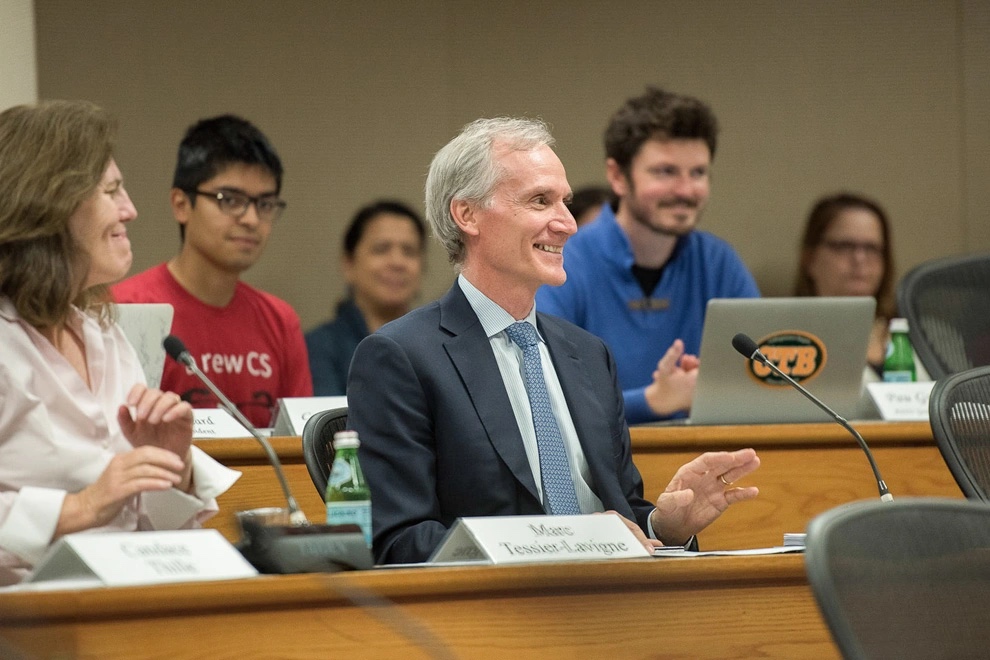University President Marc Tessier-Lavigne addressed Stanford faculty about allegations of research misconduct in papers he co-authored just hours before the research journal Cell announced it would be reopening an investigation into one of the papers in question.
Tessier-Lavigne, whose research is under investigation by the Board of Trustees as well as three prominent research journals, wrote he regretted “the impact these events are having on the university.”
In his Monday email, Tessier-Lavigne distinguished between three papers — a 1999 Cell paper and two 2001 Science papers — on which he was the senior author and several other papers on which he was a co-author.
The statement, also released to the Tessier-Lavigne lab website, said that he is in communication with Science and Cell to “determine the appropriate next steps” about new concerns raised regarding the papers on which he is the lead author. Tessier-Lavigne added that, in the papers he co-authored, the “specific images that are being queried are from collaborators’ laboratories.”
However, Tessier-Lavigne wrote, “I want to be clear that I have never submitted a paper without firmly believing that the data were correct and accurately presented. I also want to be clear that I take responsibility for any concerns that arise with respect to any work with which I have been involved.”
Tessier-Lavigne’s acknowledgement of responsibility diverged from the University’s Nov. 28 statement that directed The Daily to the researchers “who are responsible for [the] data” when asked to comment on the alleged misconduct in the papers co-authored by Tessier-Lavigne.
Faculty were quick to react. “His email was mainly for PR purposes of damage control and fairly defensive in nature. I think the ‘investigation’ is bogus — the Board of Trustees made it clear they’ll stand behind him and so that’s compromised the objectivity of the investigation,” wrote one professor who requested anonymity due to fear of repercussions in an email to The Daily. Other professors speculated that Tessier-Lavigne had little support among faculty.
Hours after Tessier-Lavigne emailed faculty, Cell told The Daily that “new concerns,” first raised in a Thursday article, “about the [Cell] paper have arisen that warrant a closer look. As with any investigation, we will work closely with the authors and our research integrity team to determine the best course of action.”
Cell had initially declined to comment on the allegations on Nov. 28, citing a policy of not speaking about individual cases. Cell joins Science and the The European Molecular Biology Organization (EMBO) Journal in investigating the president’s research.
A spokesperson for the Cell clarified that the journal’s investigation in 2015 had addressed only the specific concerns brought to the publication by Tessier-Lavigne and that the whole paper had not been reviewed.
The spokesperson also wrote that the journal had been in contact with Tessier-Lavigne since the publication of The Daily’s article but declined to expand on what those communications entailed and what next steps for the paper looked like.
The Daily has reached out to the University for comment on the statement from Cell and criticism from faculty.
